Table of Contents
When searching for authentic cinnamon information, you'll want to know the critical differences between Ceylon and Cassia varieties, their proper culinary applications, and how to select quality products that deliver both flavor and health benefits. This guide provides evidence-based answers to help you make informed decisions about one of the world's most versatile spices.
Understanding Cinnamon Varieties
Cinnamon is one of the most beloved spices globally, valued for its warm, sweet flavor profile with subtle spicy notes. Unlike common misconceptions, true cinnamon refers specifically to Cinnamomum verum (Ceylon cinnamon), while most supermarket varieties are actually Cassia (Cinnamomum cassia). Understanding this distinction is crucial for both culinary applications and health considerations.
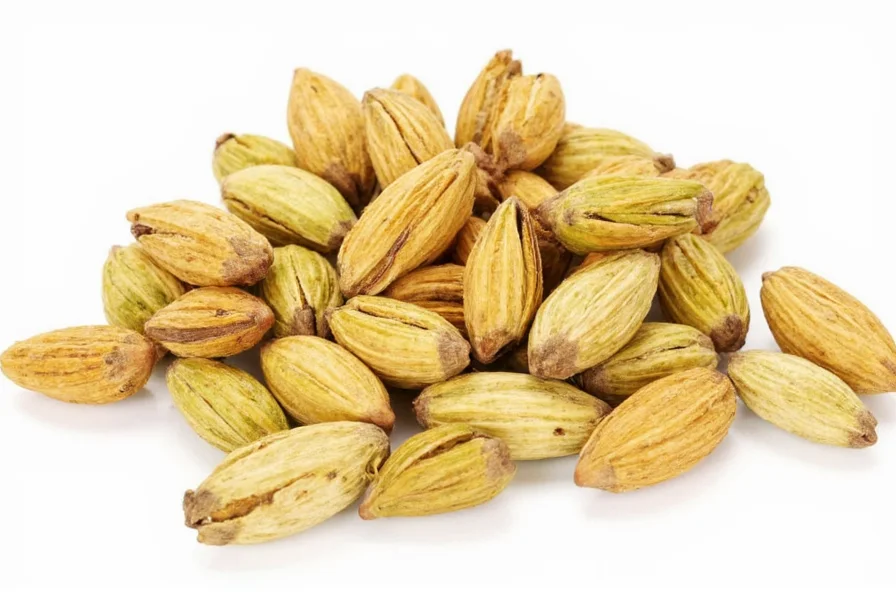
Historically prized more valuable than gold in ancient Egypt, cinnamon's journey from rare luxury to kitchen staple reveals why quality matters. Modern consumers need clear guidance to navigate the often-confusing marketplace of cinnamon products.
Ceylon vs Cassia: Key Differences
The critical distinction between Ceylon and Cassia cinnamon affects both flavor profiles and health implications. This comparison provides essential information for informed decision-making:
| Type | Flavor Profile | Physical Characteristics | Coumarin Content | Best Applications |
|---|---|---|---|---|
| Ceylon Cinnamon | Mild, sweet, complex with citrus notes | Multiple thin layers, light tan, fragile texture | 0.017g/kg (safe for regular consumption) | Daily use, delicate desserts, beverages, children's recipes |
| Cassia Cinnamon | Strong, pungent, slightly bitter | Single thick layer, dark reddish-brown, hard texture | 2.1-6.6g/kg (limit regular consumption) | Occasional use in robust dishes, spice blends, holiday baking |
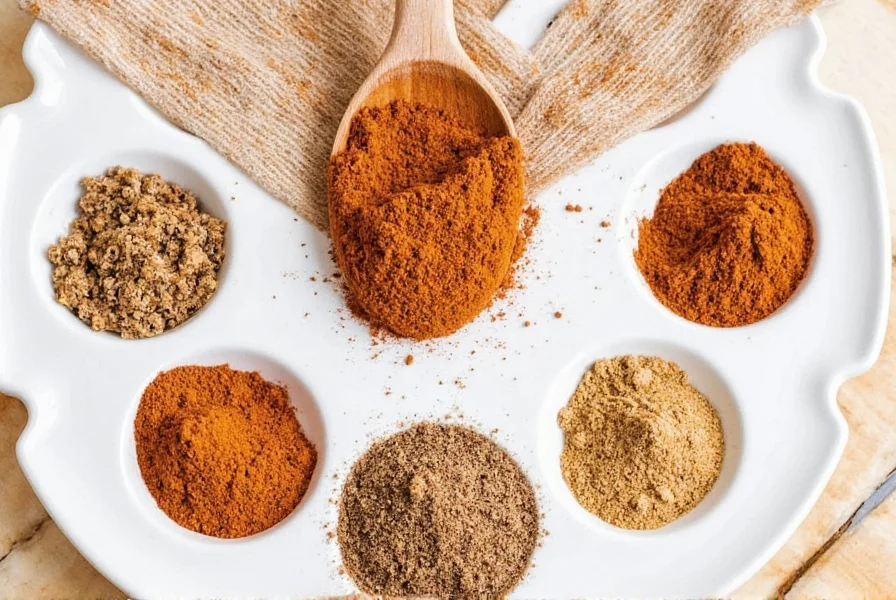
According to the European Food Safety Authority, regular consumption of Cassia cinnamon exceeding 0.1mg coumarin per kg body weight can pose liver health risks. This makes Ceylon the preferred choice for daily use, especially for children and those with liver conditions.
Practical Culinary Applications
Understanding how to properly use each cinnamon type maximizes flavor while minimizing potential health concerns:
- Daily Beverages: Use 1/4-1/2 tsp Ceylon cinnamon in coffee or tea for subtle flavor without coumarin concerns
- Baking: For delicate cakes and pastries, Ceylon provides nuanced flavor; Cassia works better in hearty pumpkin breads
- Savory Dishes: In Moroccan tagines and Indian curries, add Cassia early in cooking to mellow its intensity
- Spice Blends: Create balanced garam masala with equal parts Ceylon cinnamon, cardamom, and cloves

Professional chefs recommend toasting whole cinnamon sticks briefly before grinding to enhance flavor compounds. For optimal results, add ground cinnamon during the last 15 minutes of cooking to preserve volatile aromatic compounds.
Evidence-Based Health Benefits
Research published in the Journal of Medicinal Food (2022) confirms several evidence-supported benefits of moderate cinnamon consumption:
- Blood Sugar Management: Multiple studies show cinnamon may improve insulin sensitivity, with Cassia demonstrating stronger effects but requiring careful dosage
- Antioxidant Properties: Cinnamon ranks #1 among 26 spices tested for antioxidant activity in a USDA study
- Anti-inflammatory Effects: Compounds like cinnamaldehyde show promise in reducing inflammation markers
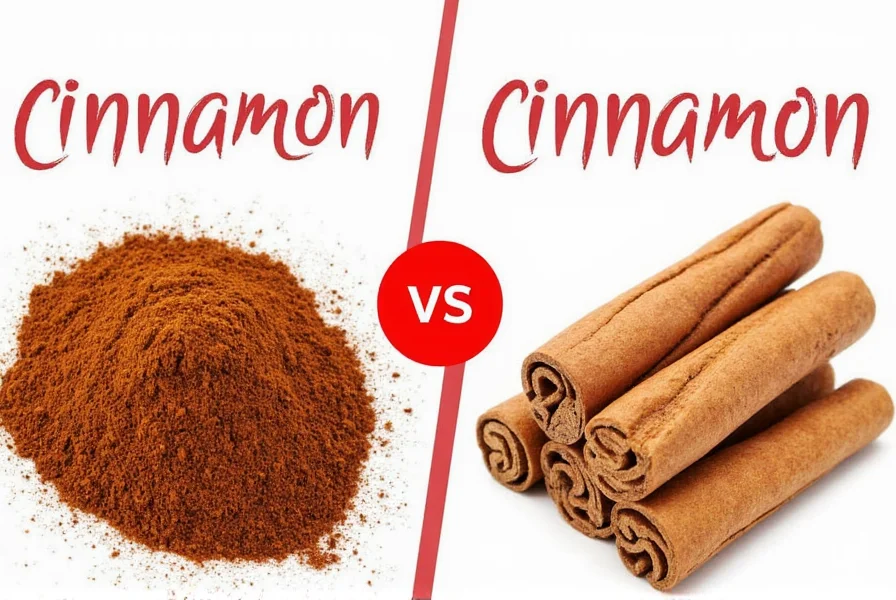
Important considerations: The American Diabetes Association notes that while cinnamon shows promise for blood sugar control, it should complement—not replace—standard diabetes management. For therapeutic use, consult your healthcare provider about appropriate dosage based on cinnamon type.
How to Choose Quality Cinnamon
Selecting authentic, high-quality cinnamon requires attention to specific indicators:
Verification Techniques
- Label Inspection: Look for "Cinnamomum verum" (Ceylon) or "Cinnamomum cassia" (Cassia) in ingredient lists
- Physical Testing: Genuine Ceylon sticks should crumble easily between fingers; Cassia remains rigid
- Aroma Assessment: High-quality cinnamon has strong, sweet fragrance without musty notes
- Color Analysis: Ceylon appears light tan; dark reddish-brown indicates Cassia
Purchase Recommendations
- For Daily Use:
- Choose organic Ceylon in glass containers to preserve volatile compounds
- Verify through third-party testing certificates when possible
- Expect to pay $15-25 for 4oz of quality Ceylon sticks
- For Occasional Use:
- Select Vietnamese Cassia for stronger flavor in baking
- Check for single-origin labeling to ensure purity
- Avoid products with "natural flavors" or anti-caking agents

Reputable brands often provide harvest dates and origin information. When in doubt, purchase small quantities initially to test flavor and quality before committing to larger purchases.
Expert Usage Recommendations
Professional culinary insights for maximizing cinnamon's potential:
- Storage: Keep in airtight containers away from light; whole sticks retain potency 2-3 times longer than ground
- Measurement: 1 cinnamon stick ≈ 1/2 tsp ground; adjust based on variety (use 25% more Ceylon for equivalent flavor)
- Pairing: Complements apple, pear, sweet potato, and chocolate; balances well with cardamom and black pepper
- Enhancement: Bloom in warm oil or butter for 30 seconds before adding to dishes for deeper flavor integration
- Safety: Limit Cassia consumption to 1/2 tsp daily; Ceylon can be used up to 1 tsp daily without concern

For baking applications requiring strong cinnamon presence (like snickerdoodles), use a 3:1 ratio of Ceylon to Cassia to achieve robust flavor while minimizing coumarin exposure.
Frequently Asked Questions
What's the main difference between Ceylon and Cassia cinnamon?
Ceylon cinnamon (Cinnamomum verum) features multiple thin layers, light tan color, and mild flavor with minimal coumarin. Cassia (Cinnamomum cassia) has a single thick layer, dark reddish-brown color, stronger flavor, and significantly higher coumarin content. These structural differences affect both culinary applications and health considerations.
How much cinnamon should I consume daily?
For Ceylon cinnamon, up to 1 teaspoon (about 2-4 grams) per day is generally considered safe for regular consumption. For Cassia cinnamon, limit intake to 1/2 teaspoon (approximately 1 gram) daily due to its higher coumarin content. Those with liver conditions should consult healthcare providers before regular consumption of any cinnamon variety.
Can I substitute Ceylon cinnamon for Cassia in recipes?
Yes, but you'll need to adjust quantities. Ceylon's milder flavor typically requires using 25-50% more than Cassia to achieve similar flavor intensity. For dishes where cinnamon is a prominent flavor (like cinnamon rolls), consider using a 3:1 ratio of Ceylon to Cassia to maintain robust flavor while reducing coumarin exposure.
How can I verify if my cinnamon is authentic Ceylon?
Genuine Ceylon cinnamon sticks consist of multiple thin, delicate layers that crumble easily between fingers and have a light tan color. They should have a sweet, citrusy aroma rather than the sharp, pungent smell of Cassia. Reputable suppliers often provide certificates of authenticity and origin documentation for verification.
Does cinnamon really help regulate blood sugar?
Research indicates cinnamon may improve insulin sensitivity, with effects varying by type. A 2023 meta-analysis in Nutrition Reviews found Cassia demonstrated stronger effects on fasting blood glucose, but its higher coumarin content requires consumption limits. Ceylon offers a safer option for regular use, though with potentially milder effects. Always consult healthcare providers before using cinnamon therapeutically.
Why does my cinnamon taste bitter?
Bitterness typically comes from Cassia varieties, which naturally contain more tannins. Overuse (especially of Cassia), stale product, or improper storage causing essential oil degradation can also create bitterness. Using fresh Ceylon cinnamon and proper measurement (starting with 1/4 tsp and adjusting) usually prevents bitterness.
How should I store cinnamon to maintain freshness?
Store whole cinnamon sticks in airtight glass containers away from light and heat sources. Properly stored, they maintain potency for 2-3 years. Ground cinnamon loses potency faster—use within 6-12 months. Avoid plastic containers as they can absorb flavors, and never store near strong-smelling spices.
Is organic cinnamon worth the extra cost?
Organic certification matters most for Ceylon cinnamon, as it's often grown in regions with fewer pesticide regulations. Look for USDA Organic or EU Organic certification with transparent sourcing. Third-party testing for purity and absence of contaminants provides more value than organic labeling alone for most consumers.
Conclusion
Understanding the critical distinctions between Ceylon and Cassia cinnamon empowers you to make informed choices that enhance both your culinary creations and wellness routine. By selecting appropriate varieties based on intended use, verifying quality through simple physical tests, and following evidence-based consumption guidelines, you can safely enjoy cinnamon's complex flavor profile and potential health benefits.
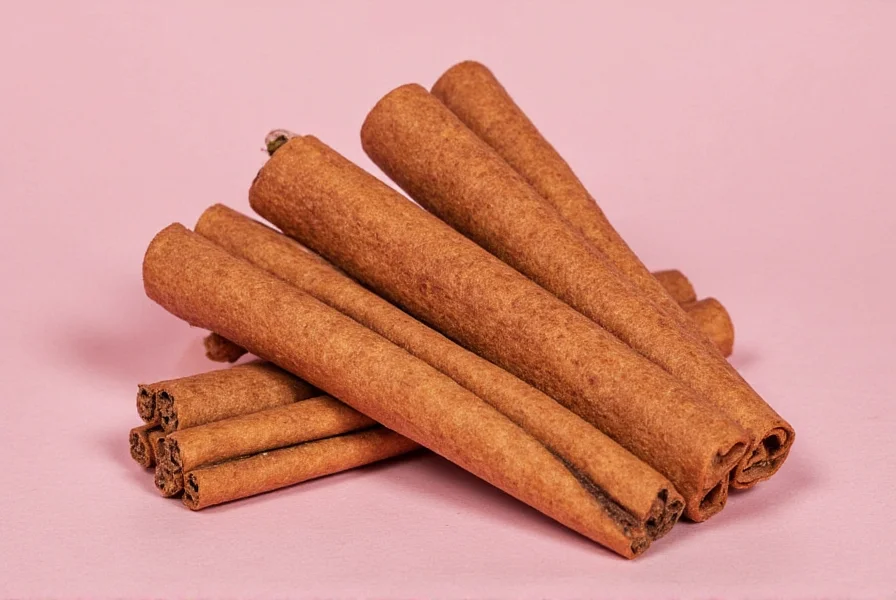
Whether crafting the perfect chai blend, enhancing morning oatmeal, or exploring cinnamon's potential role in blood sugar management, this knowledge ensures you're making choices backed by culinary expertise and scientific understanding. Remember that quality matters—investing in authentic cinnamon pays dividends in both flavor and health outcomes.

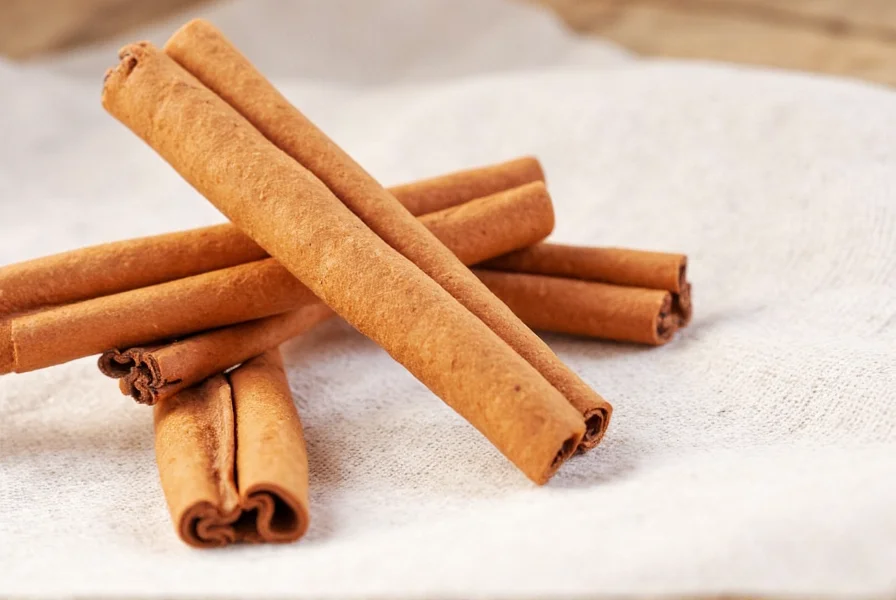









 浙公网安备
33010002000092号
浙公网安备
33010002000092号 浙B2-20120091-4
浙B2-20120091-4